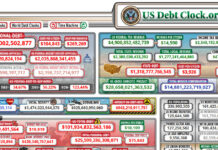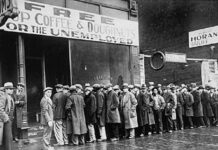
In my professional life, which lasted about 35 years, I was laid off twice. The first time, I became a consultant and got hired back by my employer and by another company where one of my former coworkers gave my resume to the head of HR. She passed it on to their CFO, and I had a job working as a contractor for them within a few weeks.
Never before nor since have I made so much money in a single year, nor have I ever paid more in taxes. You see, I had gotten several months of severance pay during my layoff, but I wasn’t out of work that long. As a consultant, I also made a very high hourly rate, and I had to pay self-employment taxes and a ton of income taxes. I eventually settled back down into a “real” job that paid less but was steady and included benefits, another expense of being self-employed.
When I got laid off the second time, I collected unemployment for a while before I got a new job. I started off making less, but within a few years, I had eclipsed my prior salary.
For me, getting laid off turned out to be not that big deal, but in each case the company for which I worked was failing, but the greater economy was doing fine. People who get laid off today will find it much more stressful.
It Happens to Everyone
If you get laid off, I think it’s important to remember that it isn’t your fault. Whether you are one of 90 people or 9,000 people laid off, don’t take it personally. They eliminated my entire division in one case. In the other, the company closed its doors and declared bankruptcy.
Don’t let a layoff get you down, and don’t be embarrassed about it. In fact, tell your friends, former colleagues, vendors and people you know in your industry. It’s always possible that one of them will feed you a new opportunity. This kind of networking is one of the best ways to get a new job.
Think about the 10,000-plus people that are being laid off by companies like Amazon, Meta, and Twitter. Most times, someone who leaves Twitter would probably land at Meta or Google. Oops, that’s no longer possible because of hiring freezes. So what should those employees do? Look for a start-up who needs someone with big-company experience and contacts. Can’t find such a company? Then start your own.
Working for Yourself
Working for yourself can be great. When I did it, all I needed was one client who paid my bills; everything after that was gravy.
Examine your professional skills and determine if there is an opportunity to do that as a one-person shop. Keep in mind that you don’t need to grow this into a multi-million dollar venture; you just need to do it long enough to get through the recession. If you can make enough to pay the mortgage, keep the lights on, and put food on the table, you’re going to be ahead of much of America after the recession hits. Then, once things recover, you won’t have a hole in your resume and your skills will still be sharp.
If your profession doesn’t lend itself to going out on your own, then look at your hobbies or other skills and see if you can turn one of them into a side gig. Maybe you play a pretty mean guitar, but you haven’t been in a band since college. Doesn’t matter; offer guitar lessons. Or, turn craft into an Etsy business.
Maybe you tiled your own bathroom, and it looks great. Offer to do some tile work for a few friends as long as they buy the materials and pay your expenses. Then take photos of the finished work and use them as references. Maybe you don’t want to do tile for the rest of your life, but you might get surprised.
Don’t Give Up
In the depths of a recession, there are going to be many months in which no companies are hiring anyone. Eventually, things will thaw out. So don’t give up. Be ready to be the first in line when the hiring freezes show cracks.
If you have a professional license, take the required continuing education hours and keep it up to date even while you are without a job. If you’ve always wanted to learn something that would make a great addition to your resume, see if there are any free or low-cost courses on line. (Check Coursera for starters.) This might also be a great time to expand into something else or turn a hobby into a vocation.
Even in the deepest recession, some people are going to still be making money or simply have money. They are going to need people to perform services for them, everything from maintaining one of their many homes so it is ready for their return at a moment’s notice to walking their dog and playing with their cat. (Yes, pet nanny is a legit job.) If they have children, the kids might need a tutor or coach. The very wealthy also hire pilots, drivers, security, personal assistants, assistants for their assistants, grounds managers, nannies, housekeepers, private chefs, personal trainers, decorators, and people to help them manage technology to ensure they have Wi-Fi on their yacht and their plane.
On a smaller level, similar jobs might include house sitting or farm sitting (which includes caring for livestock while the farm family is away), pet sitting, babysitting, picking up someone’s kids at the bus stop, and even staying home with a sick kid because mommy and daddy are too busy with work.
Getting Laid off is What you Make of it
I like to think you can always get a job at Walmart or Home Depot, but in the depths of a recession, that may not be the case. So be innovative. Create your own opportunities, even if it means straying from your old career.
Most importantly, don’t let being laid off get you down. Like much of life, how you react in the face of adversity will have an enormous impact on how you come out of it. If you play your cards right, it will be a temporary situation and you’ll bounce back as soon as the country does. As a bonus, you might even have some new skills or at least a new approach.







